The leaders of Appalachian State University have, collectively, played a pivotal role in shaping the institution into the nationally recognized university it is today. Since App State’s founding in 1899, these visionary presidents and chancellors have guided the university with a commitment to academic excellence, community engagement, innovation and, most importantly — access to a high-quality App State education for all students. Read on to learn more about App State’s leaders, past and present.
Dr. Blanford Barnard Dougherty
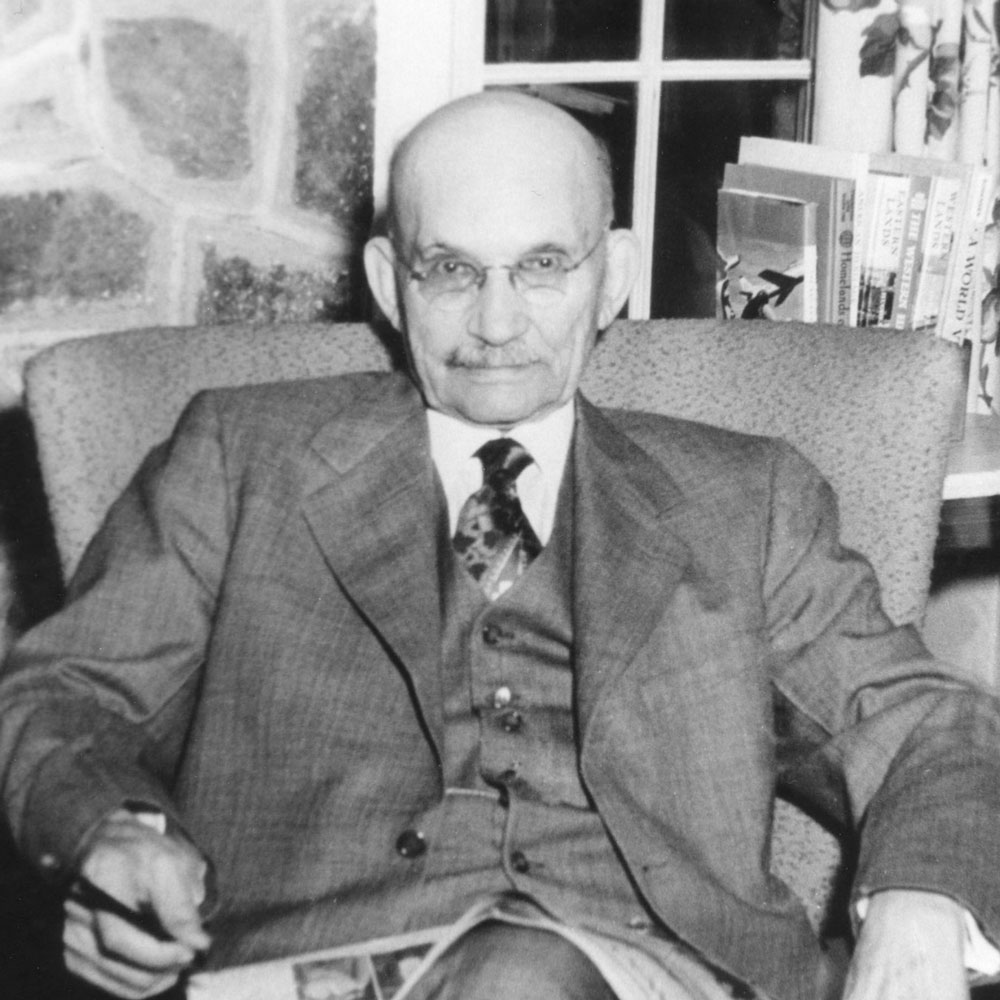
President of Watauga Academy
(1899–1903)
Appalachian Training School
(1903–1925)
Appalachian State Normal School
(1925–1929)
Appalachian State Teachers College
(1929–1955)
Dr. Blanford Barnard “B.B” Dougherty and his brother, Dauphin Disco “D.D.” Dougherty, along with D.D.’s wife, Lillie Shull Dougherty, founded Watauga Academy in 1899 with the dream of helping children in North Carolina’s rural “lost provinces” discover educational opportunity to match the splendor of the mountains in which they lived. This tiny academy quickly evolved into a school preparing quality teachers to serve North Carolina.
Known as one of North Carolina’s greatest educators, B.B. led the institution for 56 years — from its humble beginnings as Watauga Academy to Appalachian Training School, the two-year Appalachian State Normal School and later the four-year Appalachian State Teachers College. The pioneering spirit necessary to overcome the area’s isolation and hardships quickly characterized the institution, giving App State its special niche in higher education.
B.B.’s leadership also led to the creation of the university’s nonprofit electric utility, New River Light and Power, which provides power to both App State and the Boone community. He also helped bring rail service and the first paved roads to the area and served as Watauga County’s school superintendent from 1899 to 1916.
Dr. James Daniel Rankin
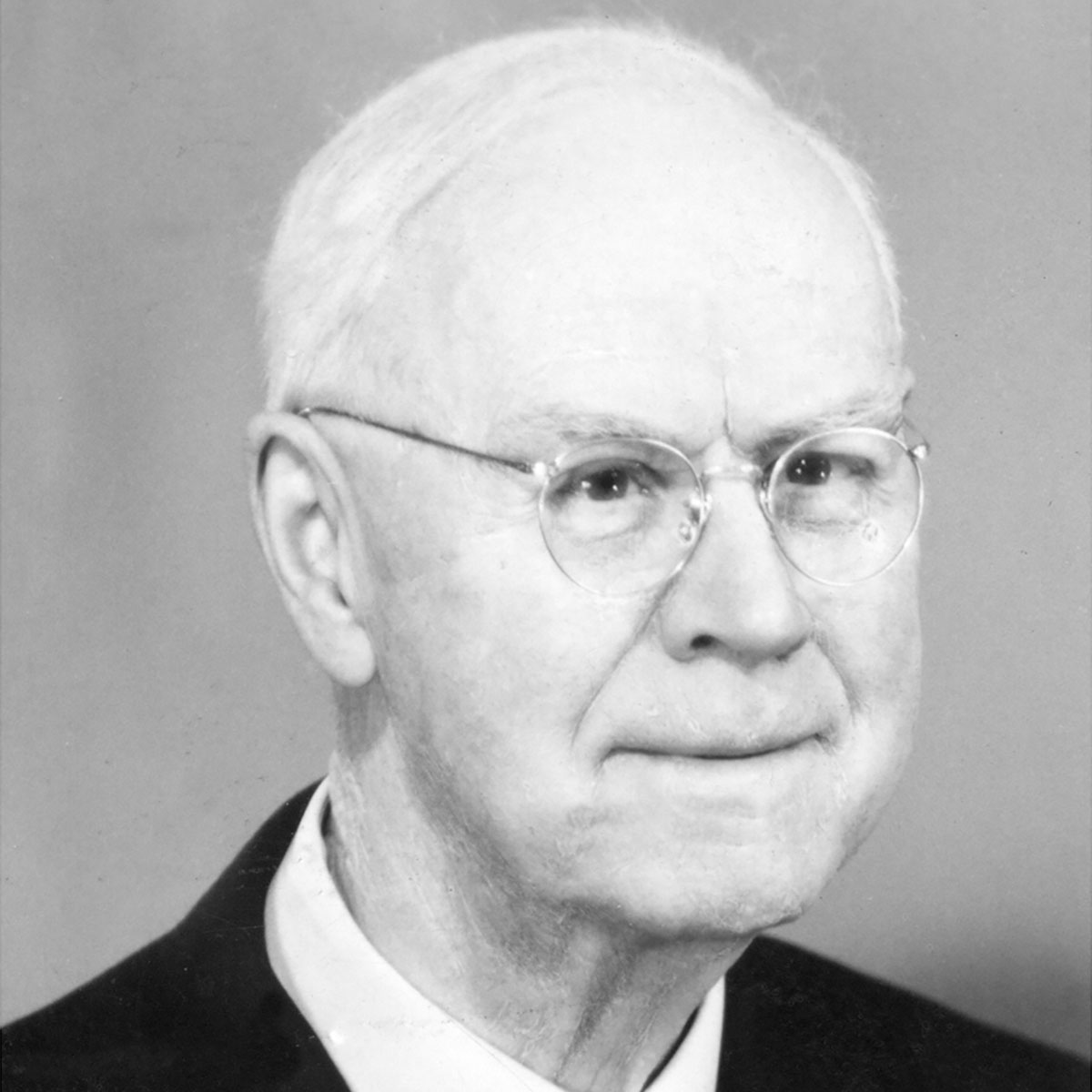
Interim President of Appalachian State Teachers College
(1955)
The Appalachian State Teachers College Board of Trustees appointed Dr. James Daniel “J.D.” Rankin as interim president of Appalachian State Teachers College in 1955, following the retirement of B.B. Dougherty in June 1955. Prior to his interim role, Rankin was a professor of English at Appalachian Training School, Appalachian State Normal School and Appalachian State Teachers College from 1921 to 1929 and became dean of the college in 1929. The Rankin Science Building complex at App State’s Boone campus, completed in 1963, is named in his honor. Rankin retired from App State on Sept. 1, 1955.
Dr. William H. Plemmons
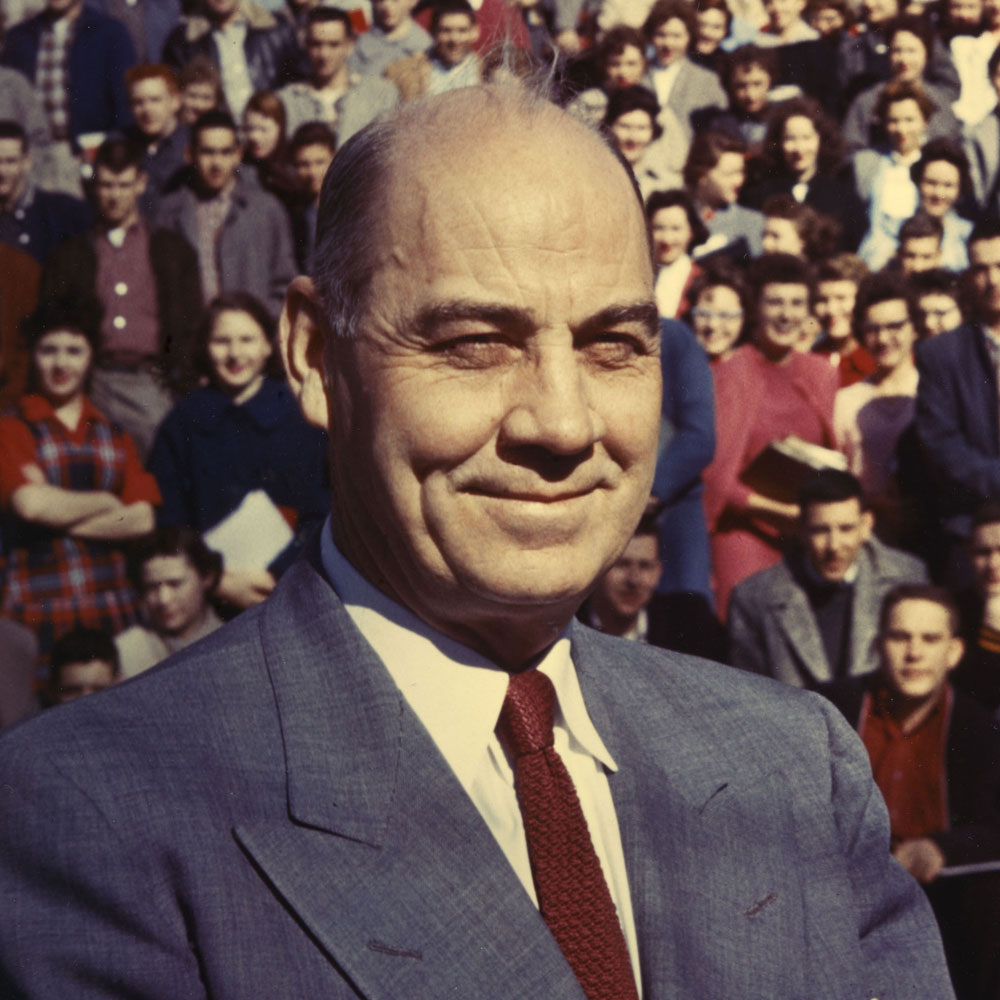
President of Appalachian State Teachers College
(1955-1967)
Appalachian State University
(1967–1969)
Dr. William H. Plemmons presided over App State’s transformation from a single-purpose teachers college into a multipurpose regional university. Yet, the features that set App State apart — quality teacher training and a commitment to community spirit, faculty collegiality and a beautiful mountain setting — remained secure under his leadership.
Known as the builder president, Plemmons oversaw 25 construction projects and strengthened the App State spirit through enhanced activities for students and alumni, creating an interconnected community called the Appalachian Family. App State’s Plemmons Student Union, located in the heart of the Boone campus, is named in his honor.
Enrollment exceeded 2,400 by 1958, only to double within 10 years, and full-time faculty grew to more than 300. A former teacher and principal, President Plemmons emphasized the need for a liberal arts curriculum and continued App State’s reputation for academic excellence. During Plemmons’ tenure, App State began offering master’s-level programs.
Dr. Cratis D. Williams
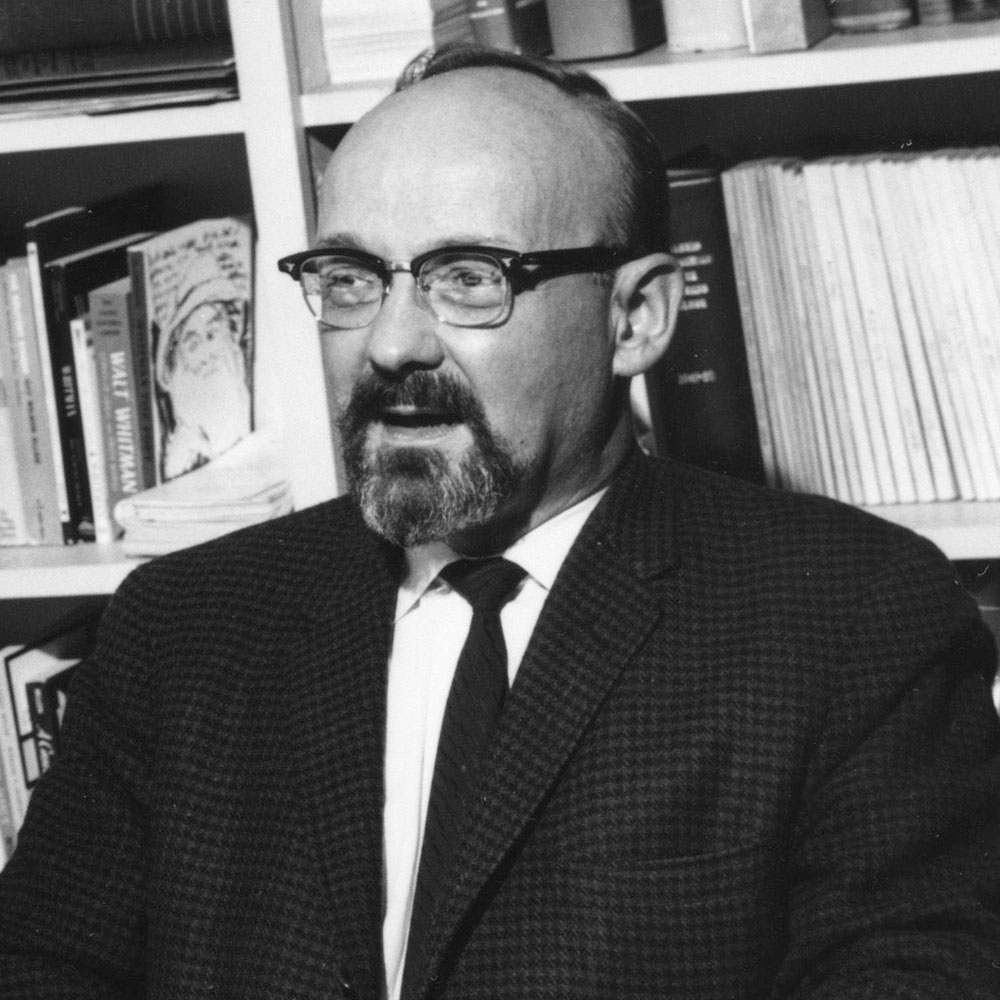
Acting Chancellor of Appalachian State University
(1975)
Interim Chancellor
(1979)
Dr. Cratis D. Williams served as acting chancellor of Appalachian State University in 1975, during Chancellor Wey’s six-month leave of absence from the university. During the first half of 1975, and with the support of a Ford Foundation grant, Wey visited universities around the world and studied their innovative practices in higher education.
A scholar and folklorist, Williams joined the faculty of Appalachian State Teachers College in 1942 and later served as dean of the university’s graduate school from 1956 until 1975 and as acting vice chancellor for Academic Affairs in 1974. He served a brief stint as interim chancellor following Wey’s retirement in 1979. Williams is widely recognized as “Mister Appalachia” for his scholarship on the Appalachian region, and App State’s Williams School of Graduate Studies is named in his honor.
Dr. Herbert W. Wey
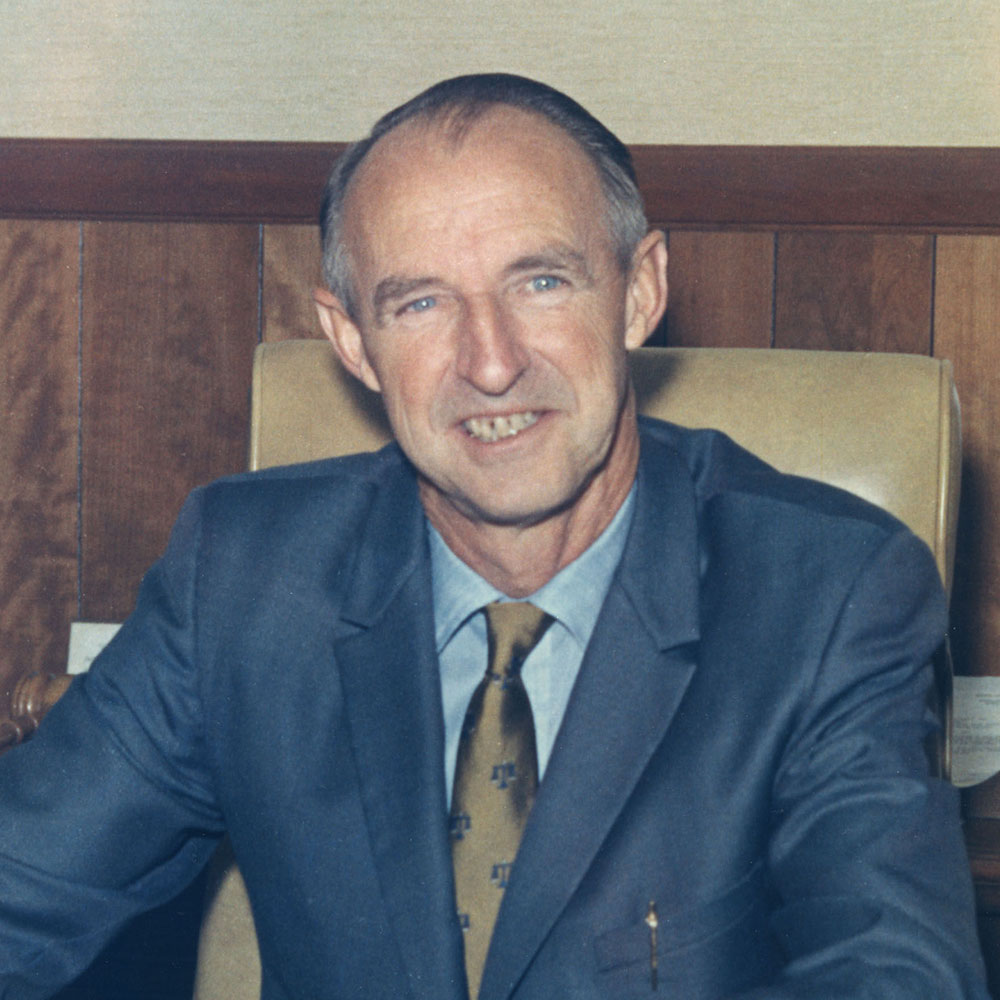
Chancellor of Appalachian State University
(1969–1979)
A former mathematics and physics teacher, Dr. Herbert W. Wey presided over App State as president and then chancellor as the university became part of the University of North Carolina System in 1971. He introduced innovations that earned App State national recognition as an institution of change, all while enrollment doubled to about 9,500.
Under his leadership, App State implemented the student teacher program, College of Business, continuing education program and Watauga Residential College, a small residential college within the greater university. It also secured the New York Loft and App House in Washington, D.C., for off-campus scholarly activities. To ensure the university’s continued innovation and success, Wey created the Appalachian State University Foundation Inc. to solicit support from individuals, corporations and businesses.
Wey was a prolific writer and researcher. Peers referred to him as the “educational innovator” for encouraging faculty to develop and practice new theories of teaching and learning.
Dr. John E. Thomas
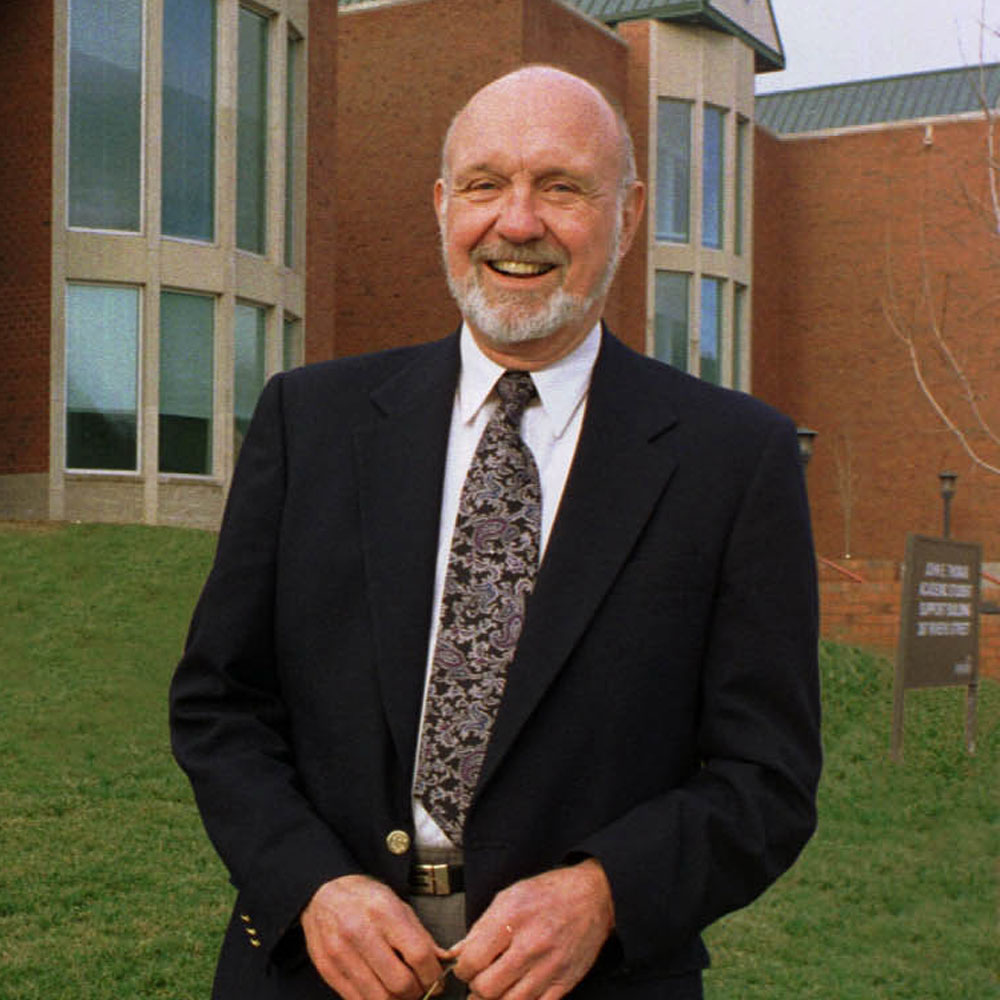
Chancellor of Appalachian State University
(1979–1993)
Dr. John E. Thomas recruited a first-rate faculty at App State, believing that strong, effective teaching should be supported by research and community service.
With a focus on improving campus technology and blending it into teaching, Thomas also developed App State’s leadership in distance learning, which expanded in the late 1990s and early 2000s to include a formal partnership with 10 regional community colleges. Under Thomas’ leadership, App State developed exchange programs in a dozen countries, including China, Germany and Costa Rica. During his tenure, App State’s campus also became an increasingly popular host for summer camps for children and continuing education courses for public school teachers and other professionals.
Boone’s Rivers Street, from Blowing Rock Road to Burrell Street, is also known as the Chancellor John Thomas Thruway — an honorary designation bestowed by the North Carolina Board of Transportation.
Dr. Francis T. Borkowski
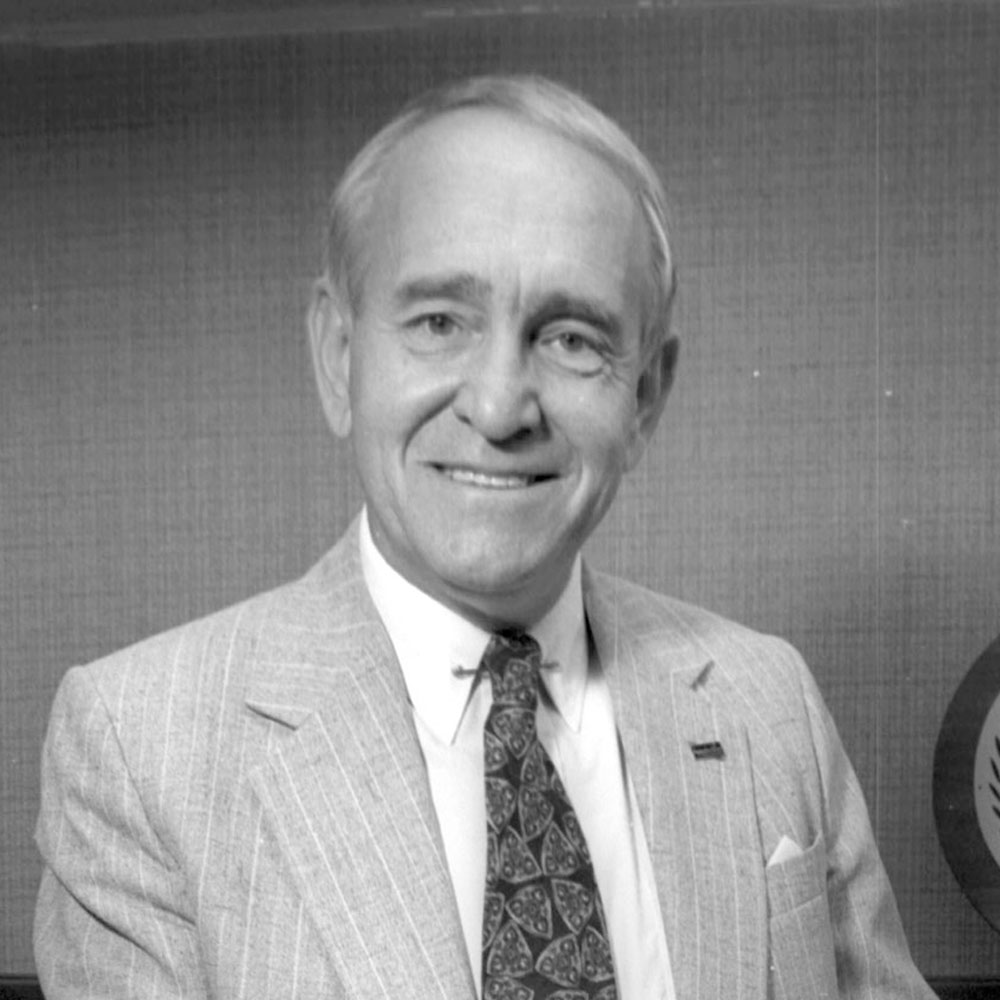
Chancellor of Appalachian State University
(1993–2003)
The focus on international education at App State continued with Dr. Francis T. Borkowski, who entered his chancellorship with a vision to create a distinctive learning environment sensitive to rapid world changes, such as technology and globalization, yet rooted in mountain values and App State’s tradition of teaching, scholarship and service. The university’s expanded global focus garnered App State recognition by the American Council on Education as a model institution for international studies.
As enrollment grew from 12,200 to more than 14,300, Borkowski strengthened App State’s academic reputation by supporting programs such as Freshman Seminar, freshman learning communities and the Summer Reading Program — all of which led Time magazine to name App State a “College of the Year” in 2001.
The university celebrated its 100th anniversary under Borkowski’s leadership and experienced growth in campus infrastructure, including the construction of the Holmes Convocation Center, McKinney Alumni Center and Rivers Street Parking Deck. Also, App State broke ground on the approximately $47 million Belk Library and Information Commons, which was completed in 2005.
Dr. Harvey R. Durham
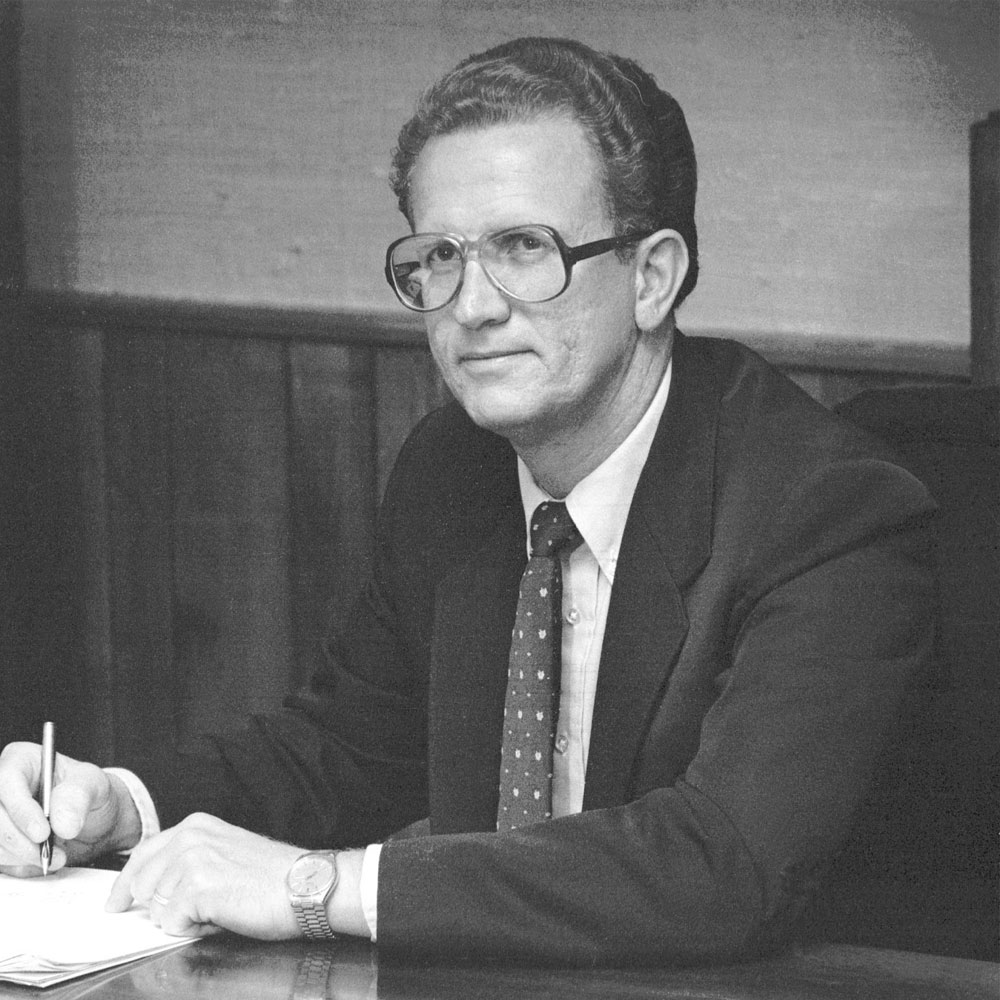
Acting Chancellor of Appalachian State University
(2003–2004)
In May 2003, University of North Carolina System President Molly Broad appointed Dr. Harvey R. Durham as acting chancellor of App State. Prior to this appointment, Durham had served as the university’s chief academic officer for 24 years and as a professor, a department chair and an associate vice chancellor for 14 years. Durham served as acting chancellor for the 2003–04 school year.
Dr. Kenneth E. Peacock
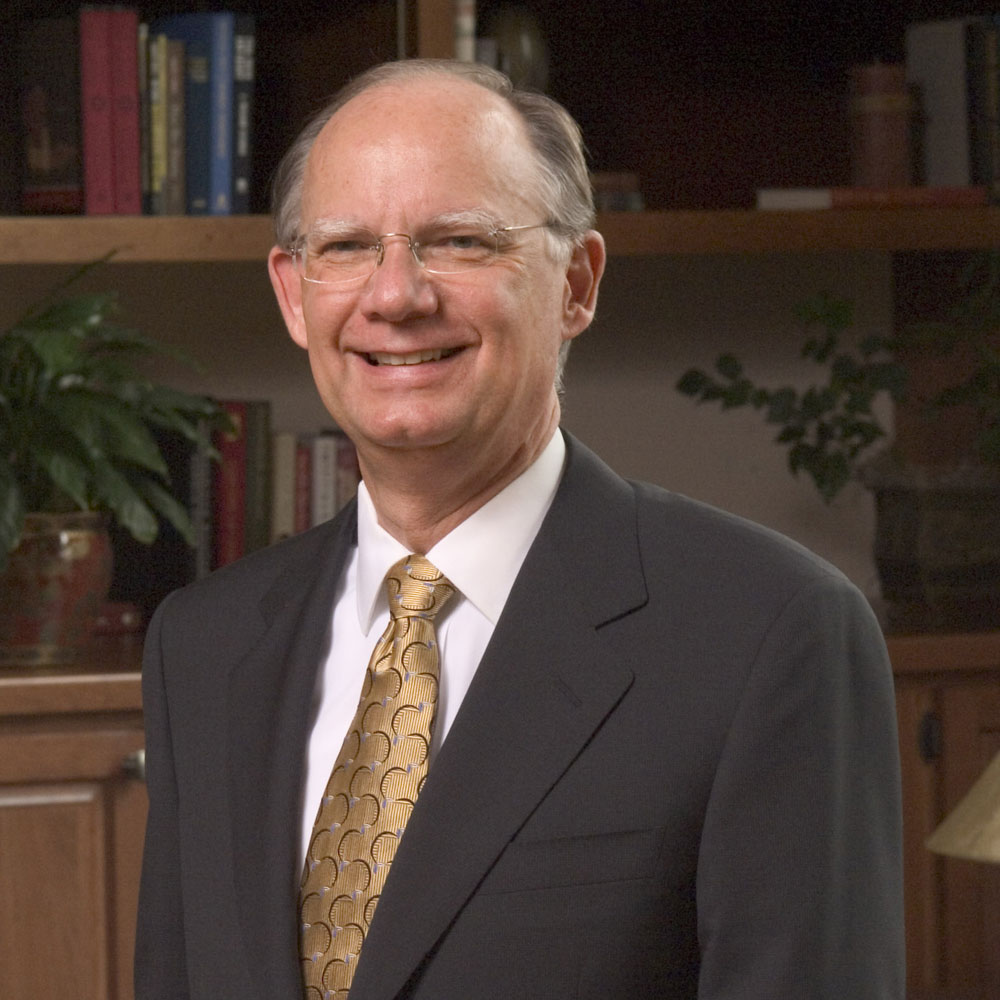
Chancellor of Appalachian State University
(2004–2014)
Under the leadership of Dr. Kenneth E. Peacock, App State became a destination of choice for students, whom Peacock pledged to serve first — “students first, quality in all.” Peacock served as both a professor in and dean of the Walker College of Business before his time as chancellor. The college is housed in Peacock Hall, named in his honor.
In addition to small classes and challenging academics, App State became known for its undergraduate research, internationalized curriculum, service-learning and sustainability, both in academic programs and campus practices. The university grew significantly in the areas of health care and the nexus of energy, the environment and economics, with the establishment of the Beaver College of Health Sciences and the annual Appalachian Energy Summit. He also established the Appalachian Commitment to a College Education for Student Success (ACCESS) Scholarship Program that provides low-income college students from North Carolina with a debt-free, four-year App State education. Enrollment during his tenure increased from 14,653 to 17,838.
App State received increased national attention for its academics, as well as its three national NCAA football championships in 2005, 2006 and 2007, and began its transition into the NCAA Division I Sun Belt Conference in March 2013, when Peacock and the App State Board of Trustees accepted an invitation to join the conference.
Dr. Sheri Everts
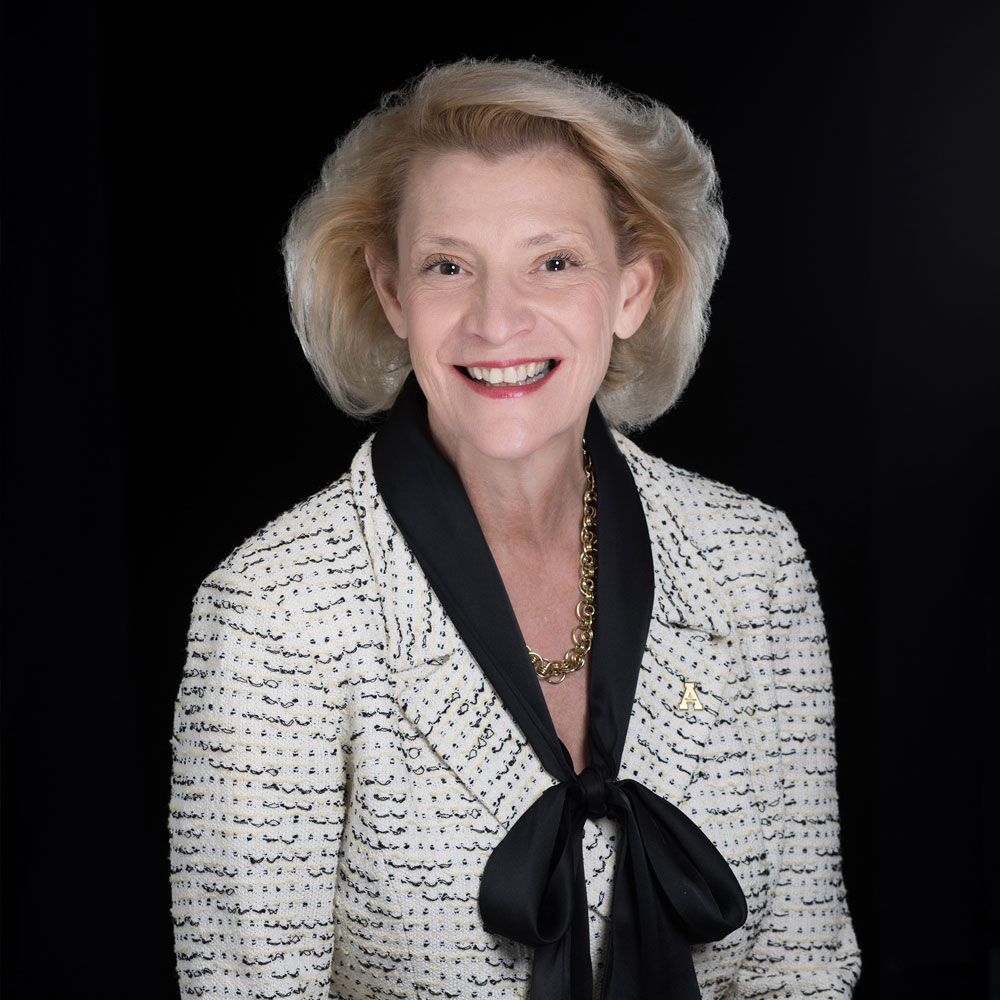
Chancellor of Appalachian State University
(2014–2024)
Under the leadership of Dr. Sheri Everts, App State distinguished itself as a premier public institution. During her tenure, enrollment grew to more than 21,000, and she secured more than $550 million for capital projects for the university, representing one of the largest infrastructure investments in the entire UNC System. State-of-the art residence halls, academic facilities and athletics facilities have changed the face of the university in the last decade, and in 2022, the university broke ground on the first phase of its Innovation District, which is expected to have a lasting and powerful impact on the region — and beyond.
In addition, the university opened a new campus — the App State Hickory campus — under Everts’ leadership, expanding educational access in Western North Carolina, and launched new, innovative academic programs, such as the four-year veterinary technology degree program. In 2016, Everts launched the Chancellor’s Innovation Scholars Program to support research and practice related to the innovation of higher education.
In 2018, Everts led the charge in opening the App State Academy at Middle Fork, which serves approximately 300 K–5 students with research-based practices, state-of-the-art literacy instruction and exemplary classroom instruction and administration.
Dr. Heather Hulburt Norris
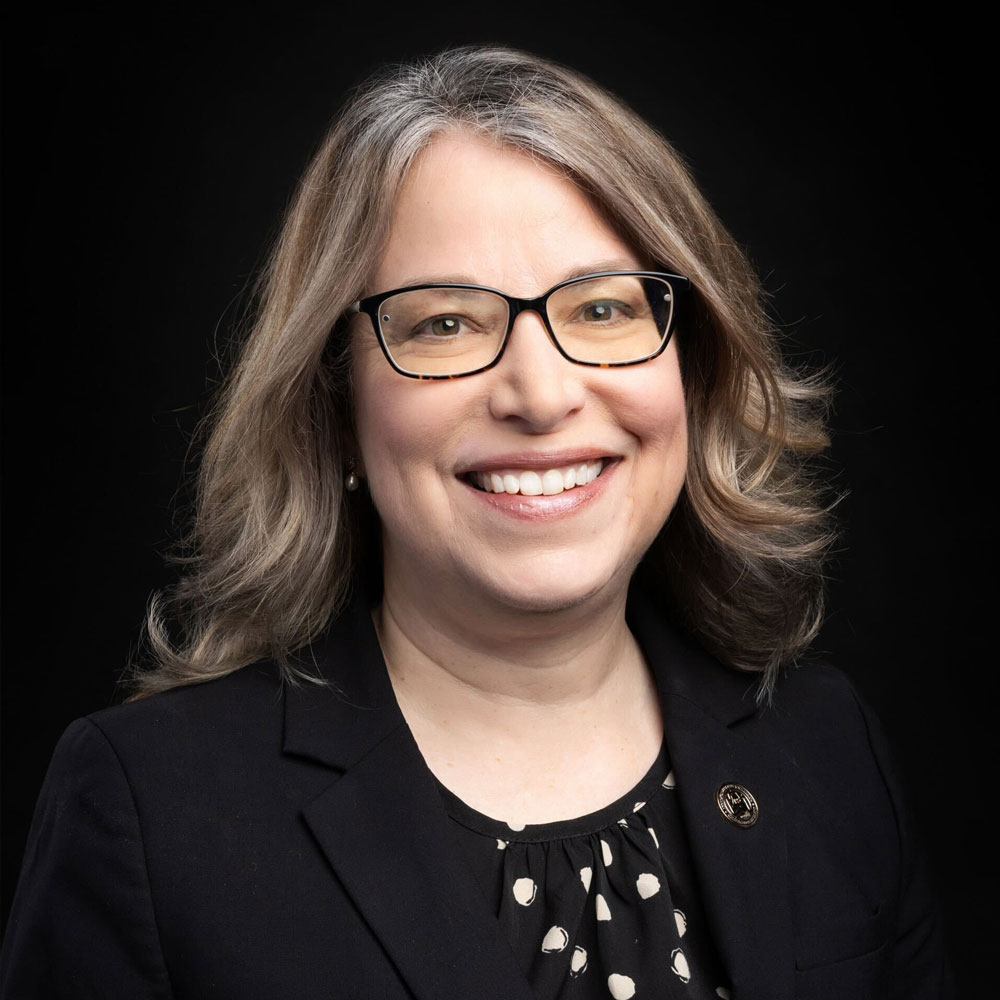
Interim Chancellor of Appalachian State University
(2024–2025)
Chancellor of Appalachian State University
(2025–Present)
App State is advancing into its next 125 years under the guidance of Chancellor Heather Hulburt Norris, who assumed her role as chancellor on March 1, 2025 — after having served as interim chancellor of App State since April 19, 2024. Norris, who brings more than two decades of academic leadership, vision and expertise to the role, is committed to advancing the university’s founding mission of access to higher education.
Her career has been characterized by her strong, collaborative leadership and service to both App State and the greater community. Under her leadership, App State has expanded its academic program offerings to align with the workforce development needs of the state’s industries and to prepare Mountaineer students to excel in the careers of the future. On April 29, 2024, App State signed an agreement to partner with Project Kitty Hawk, a nonprofit affiliate of the UNC System, to offer streamlined App State Online degree programs designed for nontraditional learners — part of a statewide effort to expand higher education access to millions of working adults in North Carolina. Four new programs began in 2024: a Bachelor of Science in health sciences, a Bachelor of Science in cybersecurity, a Master of Science in occupational therapy and an online Master of Public Health. And App State will launch its third doctoral degree program — a Doctor of Nursing Practice — in fall 2026.
In fall 2024, Chancellor Norris led App State’s coordinated efforts with the community to respond to and recover from the devastating effects of Hurricane Helene, which hit the Boone area on Sept. 27, 2024, and was one of the worst natural disasters in the history of the institution. Despite the storm’s disruption to the fall semester, App State experienced a 2.2% increase in spring 2025 enrollment numbers compared with spring 2024, with a record enrollment of 20,291 students for the spring semester.
Visit chancellor.appstate.edu to learn more about Chancellor Norris.
Visit appstate.edu to learn more about the university.
